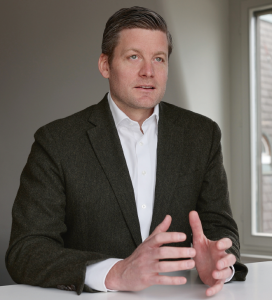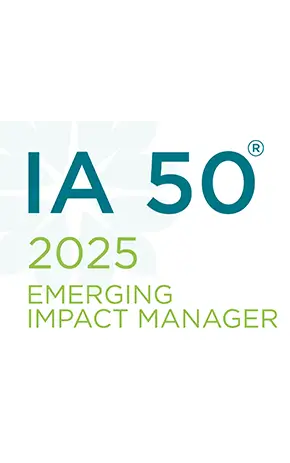
The co-founder of Enabling Qapital, a company that lends money to microentrepreneurs in emerging markets, on their business model. And about whether it’s fair for the poor to pay interest to the rich.
What does a bank need to lend money? Information about the applicant’s creditworthiness and collateral. “Or, in other words – exactly what Meghana can’t offer,” says Roger Müller, forty, co-founder and managing partner of Enabling Qapital, a Zurich-based impact investment startup, over lunch at the “Ginger” restaurant in Seefeld.
The young, married woman and mother of two young children lives in a village in the southern Indian state of Karnataka, and she is a dairy entrepreneur. She has bought a cow, sacred to the Hindus, for 55,000 rupees (650 Swiss francs), and the milk yields reach 60 to 70 Swiss francs a month. That is the gross return before taking into account expenses for feed and maintenance, or better: care of the ruminant, plus capital repayments of around 20 francs a month and interest costs of another 10 francs.
Meghana is one of the world’s one and a half billion so-called unbanked, unbankable people. That’s why she took the complicated and expensive detour via two capital intermediaries – and ultimately came into money that Enabling Qapital, the Zurich-based startup, collected from Swiss pension funds and wealthy private investors.
Small loans, big business
Microloans – the microfinance idea is also known as impact finance – are not a new invention, and not a Swiss one either. In the mid-1970s, Muhammad Yunus started a similar program in Bangladesh, and in 2006 he was awarded the Nobel Peace Prize for his services. Worldwide, 150 to 200 million people currently have such loans, and the funds made available are estimated at $70 billion; Bangladesh and India are microfinance centers.
More than twenty years ago, following a United Nations push, the first commercial microfinance credit investment company was founded in Geneva. Enabling Qapital, which I accompanied to southern India, was founded three years ago by former employees of the pioneering company. To date, the fund company has raised more than 600 million francs from professional investors for its two funds (the company has employees in Bangalore, Bishkek, Karachi, Manila, Mexico City, Nairobi, and Quito).
There are observers who are harsh on the cost of capital; borrowers in southern India pay 17 to 20 percent for it, which is partly related to the level of interest rates there. They would rather see authorities in rich countries provide more development aid. In their eyes, expensive loans drive the poor to their doom. To counter this, Müller says that the majority of customers who get into payment difficulties make entrepreneurial mistakes.
He is probably right. Microcredit is not the perfect solution, but it is probably the best for borrowers without a track record or a bank account – a business model that has lifted millions of recipients out of abject poverty. Meghana in the southern Indian state of Karnataka, for example. She will soon buy another cow, she says, with money from Switzerland. With money from Switzerland.
Mark van Huisseling
*translation – Weltwoche Nr.23.23 *







